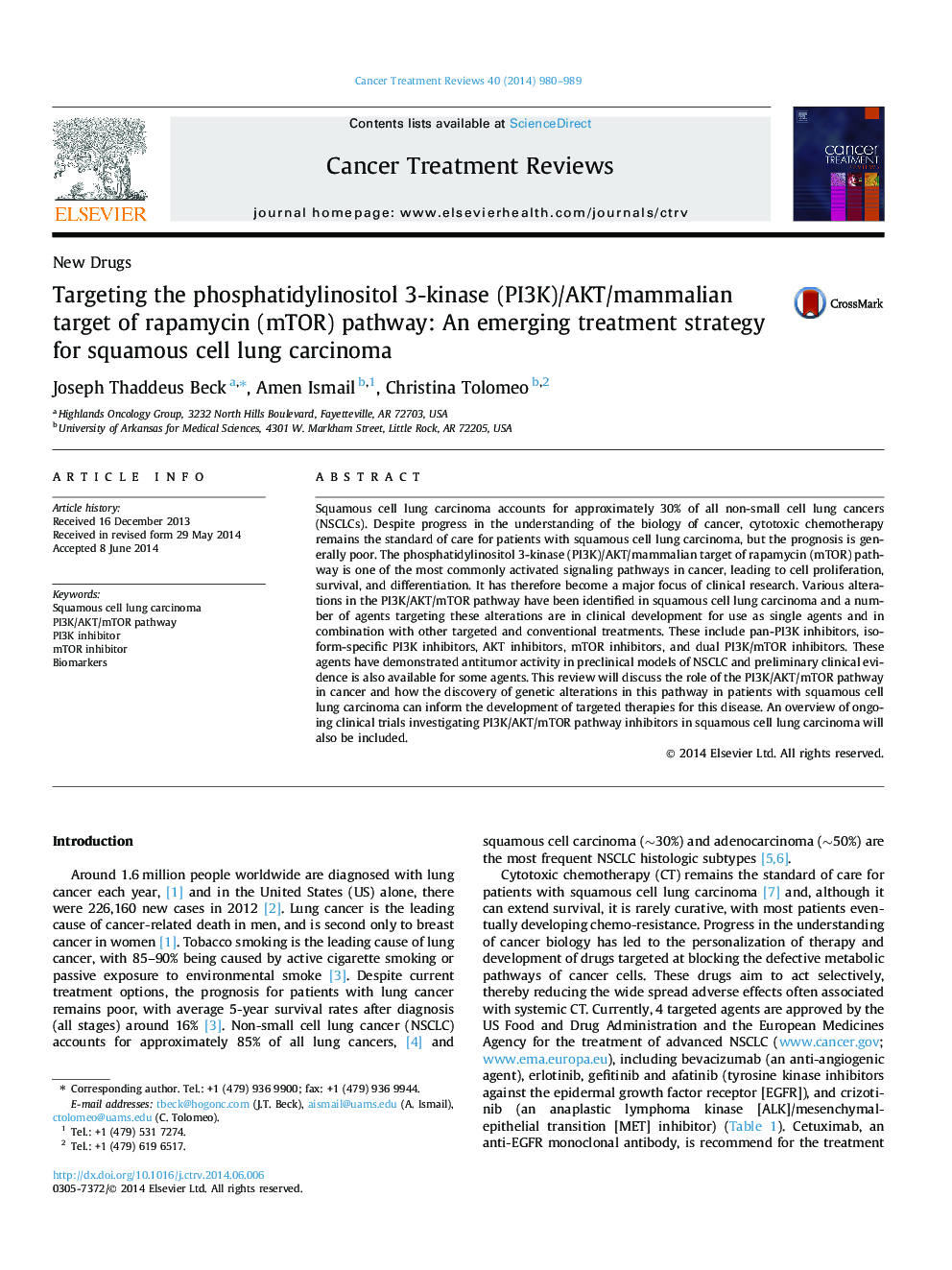| کد مقاله | کد نشریه | سال انتشار | مقاله انگلیسی | نسخه تمام متن |
|---|---|---|---|---|
| 6190541 | 1257383 | 2014 | 10 صفحه PDF | دانلود رایگان |

- Squamous cell lung carcinoma accounts for â¼30% of all NSCLCs.
- The PI3K/AKT/mTOR pathway is one of the most frequently altered pathways in cancer.
- Many PI3K/AKT/mTOR pathway inhibitors are under clinical development for lung cancer.
- We discuss the preliminary clinical activity observed with these inhibitors.
- We also highlight the potential impact of predictive biomarkers and NGS.
Squamous cell lung carcinoma accounts for approximately 30% of all non-small cell lung cancers (NSCLCs). Despite progress in the understanding of the biology of cancer, cytotoxic chemotherapy remains the standard of care for patients with squamous cell lung carcinoma, but the prognosis is generally poor. The phosphatidylinositol 3-kinase (PI3K)/AKT/mammalian target of rapamycin (mTOR) pathway is one of the most commonly activated signaling pathways in cancer, leading to cell proliferation, survival, and differentiation. It has therefore become a major focus of clinical research. Various alterations in the PI3K/AKT/mTOR pathway have been identified in squamous cell lung carcinoma and a number of agents targeting these alterations are in clinical development for use as single agents and in combination with other targeted and conventional treatments. These include pan-PI3K inhibitors, isoform-specific PI3K inhibitors, AKT inhibitors, mTOR inhibitors, and dual PI3K/mTOR inhibitors. These agents have demonstrated antitumor activity in preclinical models of NSCLC and preliminary clinical evidence is also available for some agents. This review will discuss the role of the PI3K/AKT/mTOR pathway in cancer and how the discovery of genetic alterations in this pathway in patients with squamous cell lung carcinoma can inform the development of targeted therapies for this disease. An overview of ongoing clinical trials investigating PI3K/AKT/mTOR pathway inhibitors in squamous cell lung carcinoma will also be included.
Journal: Cancer Treatment Reviews - Volume 40, Issue 8, September 2014, Pages 980-989